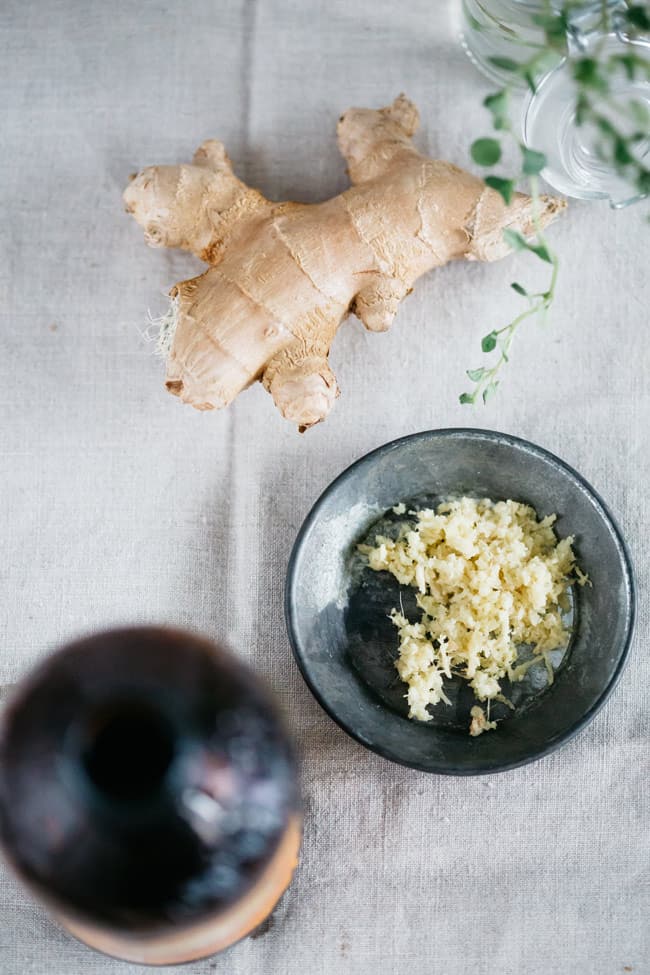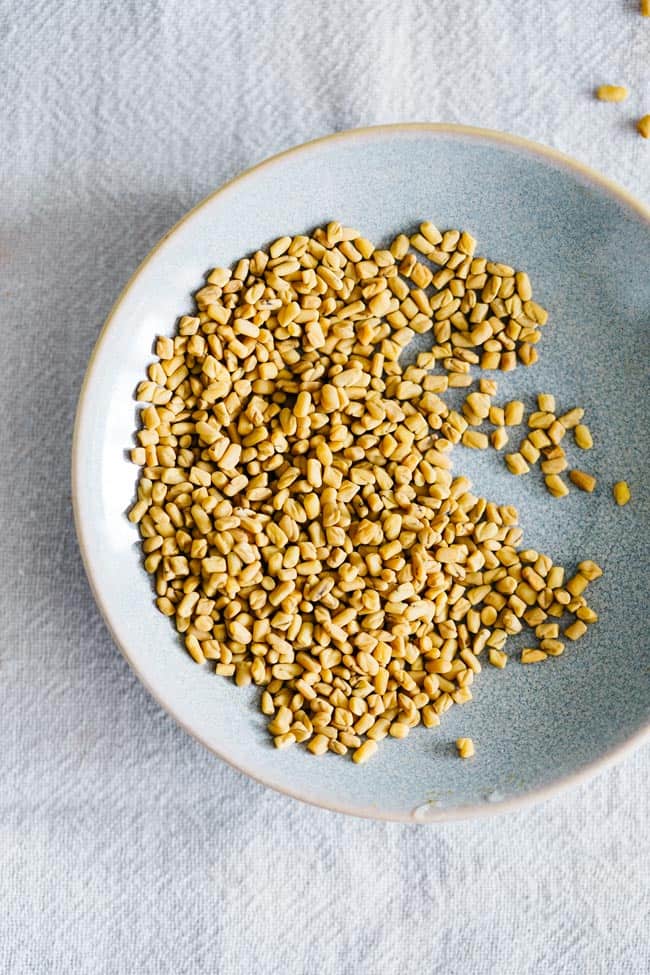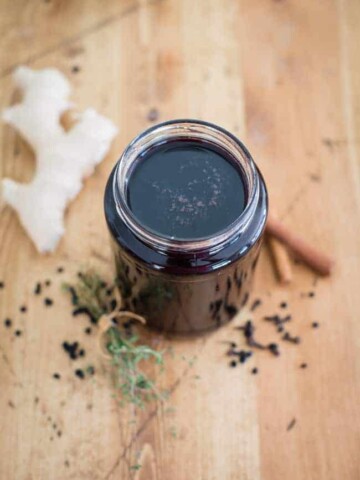'Tis the season for overeating. And we are eating foods that are greasy, rich, and hard on our systems. And stressed. And drinking. And there are a million other factors that can make you feel not-so-great during this time of year, especially when it comes to digestion.
Whether holiday jitters are giving you an upset tummy, or you're just feeling a little queasy after overdoing it at the neighbors' Christmas party, here are 12 ways to start feeling better almost immediately.
What Causes an Upset Tummy
Stomach problems are common and can be caused by various factors such as indigestion, food allergies, irritable bowel syndrome, acid reflux, and stomach flu. Symptoms of stomach problems can range from mild to severe and may include upset stomach, stomach pain, abdominal pain, nausea, vomiting, and diarrhea. Fortunately, many stomach problems can be treated at home using natural remedies. Here are some common stomach problems and home remedies that may help alleviate them:
Upset stomach: An upset stomach can be caused by a variety of factors such as overeating, food poisoning, and anxiety. Some home remedies that may help relieve an upset stomach include sipping ginger tea, drinking peppermint tea, or consuming apple cider vinegar mixed with water.
Stomach pain: Stomach pain can be caused by a variety of factors such as gas, indigestion, and food allergies. A heating pad or a hot water bottle may help relieve stomach pain. Consuming chamomile tea, ginger tea, or ginger ale may also help alleviate stomach pain.
Irritable bowel syndrome (IBS): IBS is a chronic condition that affects the large intestine. Symptoms of IBS may include bloating, gas, diarrhea, and constipation. Some natural remedies that may help alleviate IBS symptoms include consuming a diet that is low in FODMAPs (fermentable oligosaccharides, disaccharides, monosaccharides, and polyols), taking probiotics, and consuming peppermint oil.
Acid reflux: Acid reflux is a condition that occurs when stomach acid flows back into the esophagus. Symptoms of acid reflux may include heartburn, chest pain, and difficulty swallowing. Some home remedies that may help alleviate acid reflux symptoms include consuming apple cider vinegar mixed with water, consuming aloe vera juice, and avoiding spicy foods.
Stomach flu: Stomach flu, also known as viral gastroenteritis, is a viral infection that affects the digestive tract. Symptoms of stomach flu may include nausea, vomiting, and diarrhea. To prevent dehydration, it is important to drink plenty of fluids such as water, coconut water, and herbal tea. Consuming bland foods such as rice, applesauce, and toast may also help alleviate stomach flu symptoms.
Menstrual cramps: Menstrual cramps are a common problem that many women experience during their menstrual cycle. Some natural remedies that may help alleviate menstrual cramps include consuming ginger tea, taking magnesium supplements, and applying a heating pad to the lower abdomen.
Stomach lining irritation: Stomach lining irritation can be caused by a variety of factors such as alcohol consumption, smoking, and certain medications. Consuming a bland diet that is low in acidic foods may help alleviate stomach lining irritation. Additionally, consuming foods that have natural anti-inflammatory properties such as ginger, turmeric, and green leafy vegetables may also help alleviate stomach lining irritation.
12 Upset Tummy Remedies
1. Peppermint
Peppermint is acclaimed for settling an upset tummy, and can also be beneficial for indigestion or nausea. It has antispasmodic properties that can calm you and your digestive system down.
It also works to help your stomach empty its contents into the intestine more easily, so you don’t feel so full when you’ve overeaten. A cup of mint tea is great for this, but you can also try taking a whiff of peppermint essential oil or—if you're in a pinch—chew on some mint gum or suck on a piece of mint candy.
2. Probiotics
If your tummy ache is due to overdoing it on rich foods, not getting enough fiber, or drinking too much, a spoonful of plain, unsweetened yogurt or a sip of kefir should help get your gut bacteria back in balance. You should try to do it a couple of times a day for at least a week to get the best effects.
I swear by ginger kombucha when I'm nauseous or queasy. If you're up to eating, a couple bites of kimchi or fermented veggies can also help to restore that healthy gut bacteria. You can also take probiotics in capsule form.
3. White Rice or Rice Tea
Normally we'd be telling you to stick to brown rice, but if your stomach is topsy-turvy and you're hitting the bathroom more than you'd like, then the blandness of white rice helps calm down your digestive system without shocking it by adding too much fiber when it’s irritated.
If you don't feel like eating, you can drink rice tea, which is the water left over from cooking rice. Start with twice the water you normally would so you have water left. Or you can eat the rice made with the extra liquid, which is consumed as a breakfast porridge called “congee” in Asia.
4. Aloe Vera
If you have that persistent sort of acidy feeling during the holiday season from rich foods and overeating, aloe vera has been shown to help out. In a study that included patients with GERD symptoms, aloe vera syrup used for two weeks showed a reduction of symptoms leading the authors to recommend it as a safe and effective treatment [source].
It’s also helpful for that constipation that arrives in the season with the stress, travel, and not consuming much in the way of dietary fiber [source]. Aloe vera juice is easy to keep in your fridge and be added to orange juice or any drink to help control that stomach upset.
5. Apple Cider Vinegar
In addition to its use for evening out skin and combating fruit flies (and so many other uses), apple cider vinegar can alleviate stomach cramping and heartburn. Taking ACV alone on an empty stomach can make you feel temporarily worse, so you may want to dilute it with water or put it in juice if you haven't been eating much.
6. Fennel
Fennel is often used in Chinese medicine to cure stomach aches. In India, the seeds are chewed after meals to improve digestion. And in Persian traditional therapies, fennel has been used, along with other dietary modifications, to help with gas and bloating [source].
Crush up a teaspoon of seeds, opt for a cup of fennel tea, or take a fennel capsule to get those natural tummy-taming effects. Bonus: It also freshens breath!
7. Fizzy Water
This is my go-to when I'm a little nauseous, feeling stuffed and queasy because I overate, or if I just don't quite feel quite right in the tummy area. Carbonation can have the opposite effect for some people, though (especially if you're also bloated or gassy), so this method may require a little trial and error.
Caution: It will make you burp—a lot! Quick hint: add a teaspoon of baking soda to the water for its extra soothing benefits.
8. Licorice
The stems and roots of licorice have long been known for their anti-inflammatory and antioxidant capabilities. This pleasant-tasting plant has been shown to help with healing ulcers and injury to the stomach lining from taking anti-inflammatory medicines like aspirin or ibuprofen [source].
Licorice supplements have been used successfully for the symptoms of dyspepsia, such as bloating, gassiness, nausea, belching, and more [source]. Here’s one licorice root supplement that is easy to take when needed, and it’s already combined with aloe vera for that extra soothing relief.
9. Ginger
Nausea doesn't stand a chance against ginger's healing properties [source]. Remember when your mom would give you ginger ale to settle your stomach?
A cup of ginger tea, or chewing on a piece of candied or fresh ginger, works even better. (In one study, it worked as well as Dramamine [source].)
Even just inhaling ginger essence has been shown to help with nausea in one study [source]. So keep around a little ginger essential oil just in case it’s needed in this or any season!
10. Chamomile
The use of chamomile in infant colic by many cultures makes it not so surprising to see it in this category. If you're experiencing stomach cramps or indigestion, its anti-inflammatory properties in a cup of chamomile tea will soothe your stomach lining and calm the muscles near your digestive system, helping to move things along, and get rid of gas and bloating [source]. It'll also help you sleep if your stomach ache is keeping you up at night.
11. Fenugreek Seeds
Heartburn and constipation have both been treated with fenugreek seeds, which are full of antioxidants and fiber to keep your digestion happy and healthy. And it has even been shown to improve the diversity of bacteria and modulate the effects of a high-fat diet on the gut microbiome [source].
Sip a cup of fenugreek tea, sprinkle a teaspoon of the seeds on your food, or take it in capsule or liquid form.
12. Heat
If you're constipated or having cramps, a heating pad set on medium or a hot water bottle will help move things along and relax the muscles in your abdominal area. Try some healing castor oil packs when you're feeling better (and not menstruating or pregnant) and see if things improve overall—you might find you experience less indigestion and digestive upset due to their gut-calming abilities.
This article was medically reviewed by Dr. Gina Jansheski, a licensed, board-certified physician who has been practicing for more than 20 years. Learn more about Hello Glow's medical reviewers here. As always, this is not personal medical advice and we recommend that you talk with your doctor.
308






